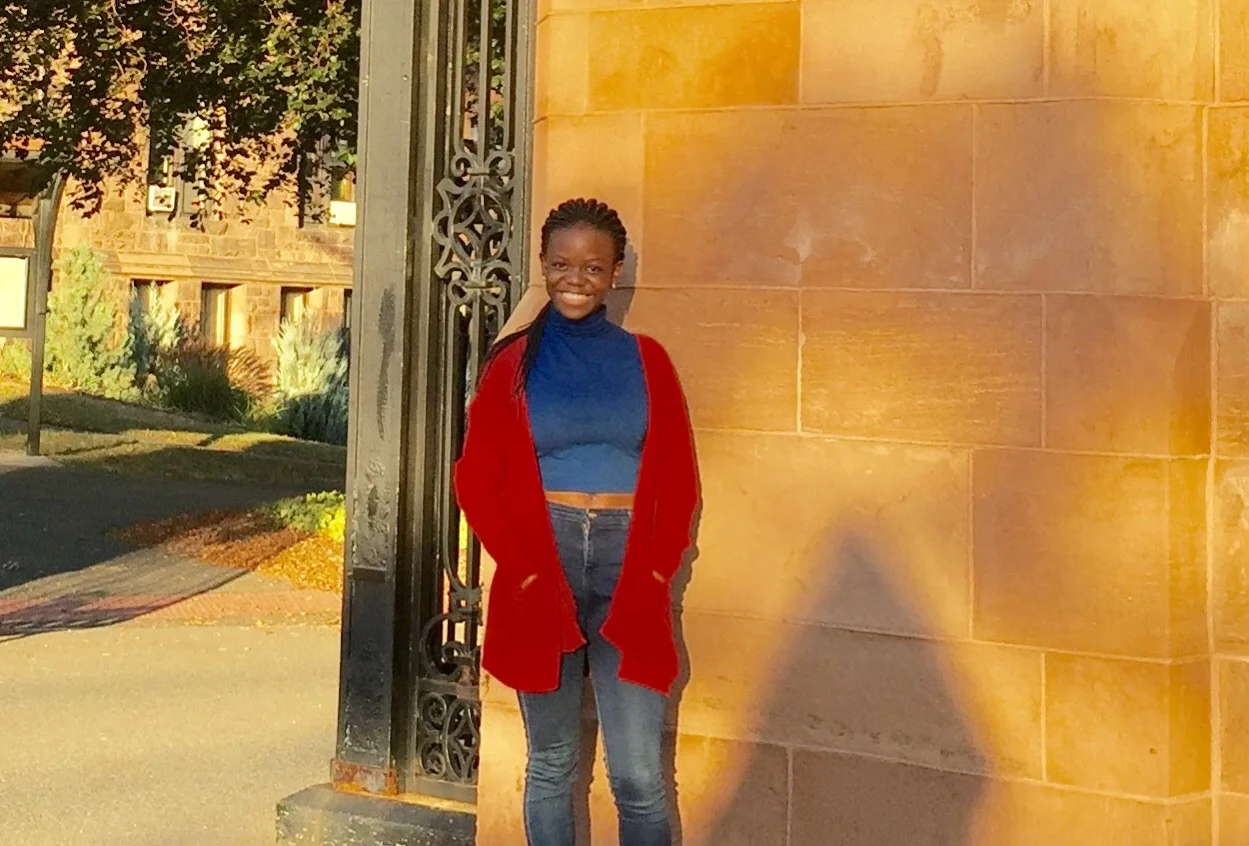On June 14, 2023, José Zamora, a prominent Guatemalan journalist, was sentenced to six years in prison on money laundering charges according to BBC World News. Reuters reported that Zamora was issued a fine of 300,000 quetzal, equivalent to $38,339 USD. The charges have been condemned by human rights organizations and described by Zamora himself as “political persecution.” Reuters also reported that the trial and verdict have led human rights groups to call the trial, happening under President Alejandro Giammattei’s administration, an attack on free speech, along with other actions against Zamora’s newspaper and journalists reporting on the corruption of the Guatemalan government.
Some Japanese universities look to reform controversial beauty pageants
On the website for The University of Tokyo Miss & Mr. Contest 2022, the portraits of 10 contestants stare back at viewers. The five women have porcelain skin, petite frames, round doe eyes and long, dark hair. The five men have clear skin, chiseled jawlines and thick and voluminous hair. Beauty contests such as The University of Tokyo’s Miss & Mr. Contest have been a staple of universities across Japan, run and sponsored by student groups within the schools as gateways for contestants to receive jobs in broadcast media, modeling or acting, based on their appearance that leans into conventional East Asian beauty standards. However, such competitions have recently been criticized for their fixations on these beauty standards alone, removing the participant’s character and personal achievements.
Activists across Latin America organize to protect water resources
Climate change has been at the forefront of international discussion with the United Nations Climate Change Conference taking place this November. An event on Thursday, Nov. 10, at the University of Massachusetts Amherst discussed the social movements taking place in Latin America in support of the climate. The panel discussion, titled “A Blue Tide Rising in Latin America?” was held by the Political Economy Research Institute, and focused on the grassroots movements based on Indigenous peoples’ involvement to make a greener Latin America.
UMass Amherst's 'Confronting Empire' series discusses the long history of US colonialism in Asia and the Pacific
The idea of the United States as an empire isn’t new, but seems to be sweeping academics and changing the way American history is discussed in college classrooms. This idea was discussed in the context of the relationship between the U.S. and the Asia-Pacific region on Tuesday, Nov. 1, 2022, when the University of Massachusetts Amherst presented “U.S. Empire in Asia and the Pacific: Repression and Resistance” as a part of the “Confronting Empire: The 2022-2023 Feinberg Family Distinguished Lecture Series.”
Russian Club hosts lecture on Russian and Ukranian art
On Thursday, Oct. 20, the Mount Holyoke College Russian Club hosted a talk entitled “The Black Square Goes Where?: (Re)locating Ukrainian Artists in the Russo-Soviet Avant-Garde.” The lecturer, Professor Daniel Brooks, is a visiting lecturer in Russian and Eurasian Studies at Mount Holyoke, and a Russian language and literature expert. His talk discussed Russian and Ukrainian art throughout history, grounding art in location, historical context, culture and language.
Professor Manu Karuka discusses effects of American imperialism
Imperialism has had roots in the United States since the beginning of the nation’s history and has produced direct consequences for the rest of the world. This was highlighted in a keynote on “The Imperialist Roots of the U.S.A.” on Oct. 3, 2022, as part of the “Confronting Empire: The 2022-2023 Feinberg Family Distinguished Lecture Series” at the University of Massachusetts Amherst. This lecture was presented by Manu Karuka, an assistant professor of American studies at Barnard College. Karuka discussed his work on the United States’ imperialist ties with the international community and how it has affected current global issues.
Lecturer Alex King looks at cultural appropriation through philosophy
On Wednesday, Sept. 28, Alex King, associate professor of philosophy at Simon Fraser University, gave a lecture on cultural appropriation. The Mount Holyoke Department of Philosophy hosted her lecture, “Cornrows and a Qipao: Cultural Appropriation and Objectifying the Other,” which was open to Mount Holyoke students and faculty. During the lecture, King focused on her thesis, telling the audience how “cultural appropriation is wrong — generally speaking — when and because it objectifies the appropriatees.”
Students in the Ethiopian diaspora reflect on the beginning of the New Year
Photo courtesy of Abigel Nahu Asteraye ’25.
The younger sister of Abigel Nahu Asteraye ’25 celebrates the Ethiopian New Year on Sept. 11.
By Cynthia Akanaga ’25
Global Editor
For Ethiopians home and abroad, Sunday, Sept. 11, marked the beginning of the new year — or Enkutatash in Amharic. For Ethiopians in the diaspora, celebrating Enkutatash looked very different from back home.
Ethiopia is one of the few countries in the world that makes use of its own calendar. The East African country uses the Ge’ez calendar, which is seven to eight years behind the Western Gregorian calendar. On the Ethiopian calendar, there are 13 months in a year. 12 of these months each have 30 days. The last month, Pagume, has five days — or six days in a leap year. This makes September, called Meskerem in Amharic, the first month of the year. Other than the unique calendar, September also ushers in the period of bright skies after a long period of rain.
Abigel Nahu Asteraye ’25, a Mount Holyoke student from Ethiopia, detailed how Enkutatash is celebrated in Ethiopia. “New Year is certainly one heck of a time to be back home. The festivities usually start a week before the actual day. You would see the streets fill out with food, spices, cattle — you name it,” she said. “The already bustling Addis Ababa would even seem more lively than ever. The vendors will be filled with adey abeba, an endemic yellow daisy that only comes out during New Year.”
“You miss the smell and view of adey abeba — a unique type of flower that blooms for the New Year — and it’s not a surprise if your stomach sinks drowning in nostalgia ... You just let it be and let it pass with the best that [you’ve] got.”
She also described the Chibo, which is associated with the end of the rainy season. She continued, “Let’s not forget the Chibo. These are bonfires we light up on the eve of the New Year, symbolizing the beginning of a new season — bright and hopeful, now that the rainy season has ended. Gathered around with family and friends, watching these torches light up, it’s hard not to feel the flames of the new beginnings light up from within.”
Behind the festivities brought on by the celebration lies the overarching theme of hope.
Salem Weldegebriel, an Ethiopian student at Gustavus Adolphus College explained, “This celebration marks a new start. There’s this tradition done during the New Year’s Eve where a unique kind of amalgamated sticks designed for this very purpose are lit up on fire and family and neighbors would gather around singing the unique New Years song. … At about the end as the fire starts to die … everyone present takes turn in jumping from one side of the burning stick to the other. This action marks the transition — done with the old, and into the new. … That’s what New Year means to me. New chance, new everything. A new life awaits if acted upon.”
“New Year is certainly one heck of a time to be back home. The festivities usually start a week before the actual day. You would see the streets fill out with food, spices, cattle — you name it. The already bustling Addis Ababa would even seem more lively than ever. The vendors will be filled with adey abeba, an endemic yellow daisy that only comes out during New Year.”
Asteraye further explained how much the New Year means to her personally. “New Year is literally the epitome of social events for me. It brings family members who might have not seen each for a while to come and visit. At the same time, it’s also a time for introspection, where I get to look ahead and make resolutions for the coming year.”
Weldegebriel drew the contrast between the celebration at home and here in the U.S.
“Back home, … the very words trigger memory, a kind of memory that imbues ever fresh nostalgia,” she said. “The contrast is ever clear cause here there’s no chime of neighbors and family gathered for the holiday. … Here, the best you get away with is perhaps [gathering] with friends coming from where you come from.”
She continued, “Here there’s no smell of coffee or freshly baked traditional bread, here there’s no smell of a rising incense from the coffee ceremony, here the best you get away with is perhaps a friend bringing you over some Ethiopian food from [an] Ethiopian restaurant and you gather to eat that and have a chat … and you miss it. You miss the smell and view of adey abeba — a unique type of flower that blooms for the New Year — and it’s not a surprise if your stomach sinks drowning in nostalgia … You just let it be and let it pass with the best that [you’ve] got.”
Asteraye echoed similar feelings of nostalgia. In terms of celebrating the new year in the U.S., she said, “We do try to create that sense of togetherness by hanging out together and grabbing some Ethiopian food on [the] New Year, but [it] still won’t feel anything close to how it is back home.”
Celebrating Lunar New Year
China Night is an annual event held by the Chinese Cultural Association to celebrate the Lunar New Year, also known as the Spring Festival, with song and dance. In past years, it has been an evening of food, music and community. Because of the need for social distancing and remote formats for large events this year, however, the CCA directed students to watch the live CCTV Spring Festival Gala, a variety show broadcast on the eve of the Lunar New Year featuring an array of performances. The CCA posted traditional Chinese customs on Instagram while the Spring Festival Gala aired.
Anti-Muslim riots in Delhi turn violent following police brutality
In the wake of months of protesting after the passage of the Citizenship Amendment bill on Dec. 8, 2019, Delhi, the capital of India, saw communal unrest and anti-Muslim riots from Feb. 23 to Feb. 26. The death toll went up to 46 with more than 250 injured. The Delhi Police arrested or detained up to 630 people. The unrest was centered around northeast Muslim-majority neighborhoods in Delhi, such as Mustafabad and Jaffrabad, among others.
Protection of illegal logging in Mexico threatens activists’ lives
What’s going on in the Middle East? Five College Professors share current events
France proposes new immigration sanctions
Worldwide Views: Keijing Jin
BY GABBY RAYMOND ’20
Unlike many other international students at Mount Holyoke, Kejing (Momo) Jin ’19, from Beijing, China, has lived in the U.S. for five years. Jin attended a test-oriented high school in Beijing that did not appreciate her drive for academic excellence or her participation in extracurricular activities. “[Students] had ten classes a day, six days a week and everything was about scores because in China it’s still all about your college entrance examination score,” said Jin.
Worldwide Views: Maha Mapara ’21
BY GABBY RAYMOND ’20
The first international student studied at Mount Holyoke in 1839, just two years after Mary Lyon opened the doors to educate women from all over the United States, according to the Mount Holyoke website. In the 2016 – 2017 school year students from over 61 countries attended Mount Holyoke College. Because one person cannot speak for a whole community, the News seeks to tell the individual stories like that of Maha Mapara, a first-year from Karachi, Pakistan.
Worldwide Views: Anran Wang '19
BY GABBY RAYMOND ’20
Making the trek to Mount Holyoke every year can result in over 20 hours of flying time for students coming from China; so what motivates so many Chinese international students to study here? For Anran Wang ’19, it was her spirit of adventure that led her to travel from her home in Guangzhou, China, to South Hadley for school. Her family moved from a small town to the large metropolitan city of Guangzhou when she was finishing her elementary school years. She cited the switch to big city life as a turning point in her personality.
Worldwide Views: Angela Nayiga ’20
BY GABBY RAYMOND '20
According to the Mount Holyoke website, the first international student came to study at Mount Holyoke College in 1839, just two years after Mary Lyon opened a door to education for women all over the United States. In the 2016 to 2017 school year there were students from over 61 countries. Angela Nayiga ’20, from Kampala, Uganda who came to Mount Holyoke last spring is one of those international students.
















